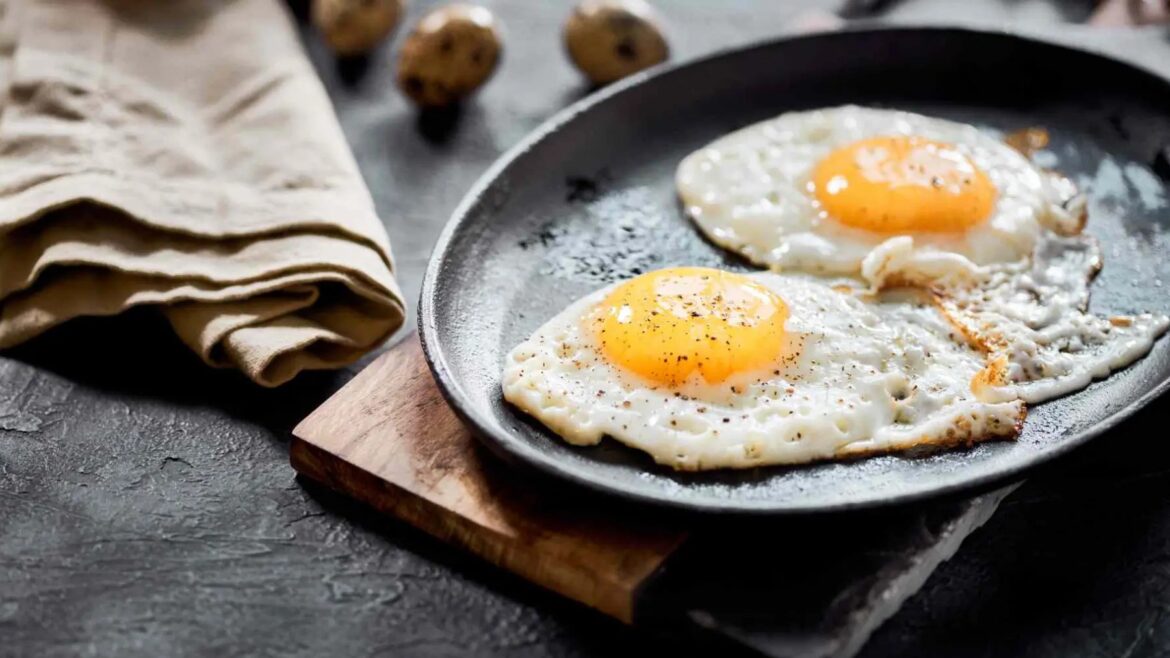Using hot water to cook them or a frying pan to prepare them sunny-side up, applying certain techniques can make the difference between a conventional egg and one with better flavor, texture, and appearance. One of these techniques involves the use of vinegar, which aids the process of protein denaturation, especially of ovalbumin, accelerating it, according to academics from the University of Wellington. Chef and author of the book “How To Dress An Egg: Surprising and Simple Ways to Cook Dinner,” Ned Baldwin, in collaboration with the cooking-specialized site The Vinegar Professor, indicates that the use of vinegar in recipes that include eggs can improve the outcome of the dishes.
The Larousse Gastronomic Dictionary defines the qualities that vinegar possesses to be used in recipes such as œufs à l’assassin typical of French cuisine, poached eggs, boiled eggs, or fried eggs. The use of vinegar is universal, but depending on the region, different levels of acidity are preferred, such as apple cider vinegar, which is much milder.
The use of vinegar in cooking
The Larousse Gastronomic Dictionary defines vinegar as an acidic and astringent liquid obtained by the acetic fermentation of any alcoholic liquid, a process involving different species of bacteria. Traditionally, the role of vinegar in cooking has been limited to the preparation of mustards, sauces, vinaigrettes, and more complex processes such as reductions or deglazing. The taste of vinegar can be extremely strong for some palates, so in some regions it is made with cider, apple, malt beer, bananas, or other fruits to reduce its acidity.
However, culinary experts advocate the use of vinegar alongside eggs, asserting that it can enhance the flavor, texture, and appearance. According to chef and author of the book “How To Dress An Egg: Surprising and Simple Ways to Cook Dinner”, Ned Baldwin, and the cooking-specialized site The Vinegar Professor, the incorporation of vinegar into recipes can improve the outcome of the food.
What happens if we cook eggs with vinegar?
This technique is recommended not only by the most expert culinary professionals, but also by Chef Baldwin, who explains that a mixture composed of 25% apple cider vinegar and 75% water is the perfect combination to add structure and flavor to boiled eggs, without the acidity taking center stage. Additionally, Wellington University explains that vinegar helps speed up the denaturation process of the egg’s main protein, ovalbumin, causing the egg white to coagulate faster and helping poached eggs maintain their shape when a few drops are added to boiling water.
How to use vinegar with eggs?
According to an article on the portal The Vinegar Professor, which specializes in cooking, the use of vinegar in the preparation of fried eggs is quite common in Europe, especially in French cuisine. It refers to the well-known recipe œufs à l’assassin or “killer eggs,” creamy fried eggs with more flavor thanks to the tablespoon of red wine required by the recipe. It also mentions other uses, such as in scrambled eggs, where a few drops of vinegar make the texture lighter.
In addition, in baking, such as in the recipe for meringues, the acidity of vinegar helps create foam when beating the egg whites, as it stabilizes the air bubbles and improves the final structure of the whipped mixture.
According to Allrecipes, what other benefits does vinegar have besides its use in cooking eggs?
In boiled eggs, it allows the shell to peel off easily, as the acid in the vinegar partially dissolves the calcium carbonate present in it.
It helps the egg whites to solidify faster, speeding up the cooking process.
In poached eggs, it helps the egg maintain a more compact and tidy shape, preventing the egg white from spreading in the water.
If you haven’t tried this cooking trick, what are you waiting for?


Dining and Cooking